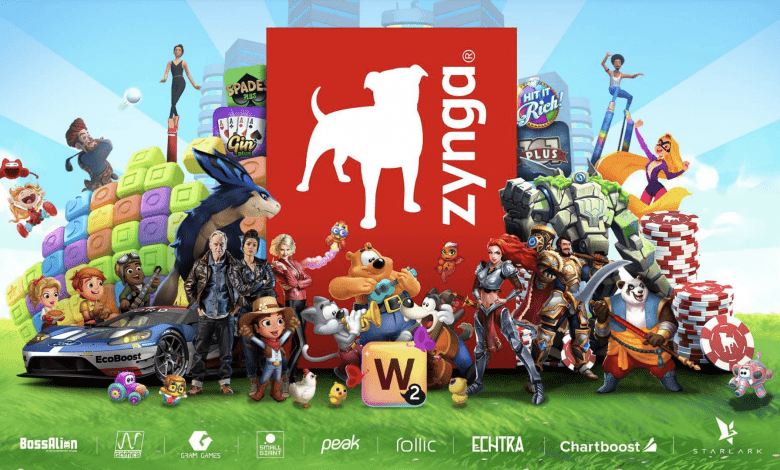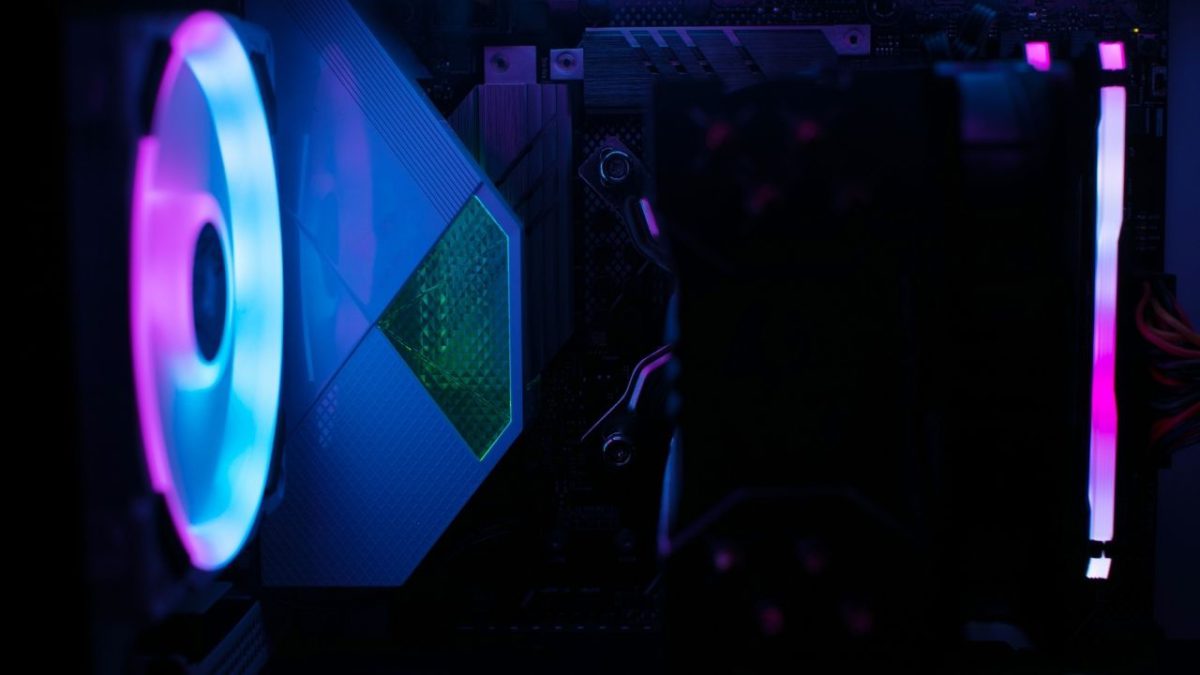Top 10 Intriguing Reasons Web3 Gaming Would Turn Into A Formidable Force In Coming Years
Web3 gaming is revolutionizing the gaming industry by introducing decentralized principles, ownership, and economies into virtual worlds. Blockchain technology, the cornerstone of Web3, is transforming gaming by enabling true ownership of in-game assets, player-driven economies, and novel gameplay experiences.
Decentralized ownership is a central aspect of Web3 gaming. Through blockchain technology, players can truly own their in-game assets as non-fungible tokens (NFTs). These unique digital assets, ranging from virtual land to rare items and characters, are stored securely on the blockchain, granting players full control and transferability. Games like Axie Infinity and Decentraland have pioneered this concept, allowing players to buy, sell, and trade NFTs in vibrant virtual ecosystems.
Moreover, Web3 gaming fosters player-driven economies where virtual assets hold real value. By leveraging blockchain-based marketplaces and decentralized finance (DeFi) protocols, players can earn rewards, tokens, and even income by participating in games and contributing to the ecosystem. This incentivizes engagement, creativity, and collaboration among players, developers, and content creators.
Blockchain technology also enables innovative gameplay mechanics through smart contracts and decentralized autonomous organizations (DAOs). Smart contracts automate game rules and mechanics, enabling provably fair gameplay and novel features like play-to-earn mechanics, where players earn rewards for their participation. DAOs empower players to govern and shape the direction of games collectively, fostering community-driven development and decision-making.
Furthermore, Web3 gaming promotes interoperability, allowing players to seamlessly transfer assets and characters between different games and platforms. This interoperability enhances player experiences and promotes collaboration and creativity across virtual worlds.
Overall, Web3 gaming represents a paradigm shift in the gaming industry, where players have true ownership, agency, and economic opportunities within virtual environments. By integrating blockchain technology, Web3 gaming is unlocking new possibilities for creativity, innovation, and player empowerment, ushering in a new era of gaming where players are not just participants but active stakeholders in virtual worlds.
Also, read- Top 12 Steps To Follow To Build Your Own Game On Web3 Gaming Platform
Importance of web3 gaming

Web3 gaming introduces several important advancements and benefits to the gaming industry, revolutionizing how games are played, developed, and monetized. Here are 10 key importance of Web3 gaming:
- True Ownership of In-Game Assets: Web3 gaming enables players to truly own their in-game assets as non-fungible tokens (NFTs) on the blockchain. This gives players full control and transferability of their digital items, fostering a sense of ownership and investment in the virtual world.
- Player-Driven Economies: Web3 gaming facilitates player-driven economies where virtual assets hold real-world value. Through blockchain-based marketplaces and decentralized finance (DeFi) protocols, players can earn rewards, tokens, and income by participating in games and contributing to the ecosystem.
- Interoperability Between Games: Web3 gaming promotes interoperability, allowing players to transfer assets and characters between different games and platforms seamlessly. This enhances player experiences and fosters collaboration and creativity across virtual worlds.
- Decentralized Governance: Web3 gaming empowers players to govern and shape the direction of games through decentralized autonomous organizations (DAOs). Players can collectively make decisions about game development, updates, and community events, fostering a more inclusive and democratic gaming environment.
- Provable Fairness: Blockchain technology ensures provable fairness in Web3 games by recording game rules and outcomes on a transparent and immutable ledger. This enhances trust among players and developers, mitigating concerns about cheating or manipulation.
- Play-to-Earn Mechanics: Web3 gaming introduces play-to-earn mechanics, where players can earn rewards, tokens, and income by participating in games and completing tasks. This incentivizes engagement and rewards players for their time and skill investment.
- Global Access and Inclusivity: Web3 gaming promotes global access and inclusivity by removing barriers to entry and enabling players from diverse backgrounds to participate in virtual worlds. Blockchain technology enables seamless transactions and interactions across borders, fostering a more inclusive gaming community.
- Creative Freedom for Developers: Web3 gaming provides developers with creative freedom and new monetization opportunities. By leveraging blockchain technology, developers can create innovative gameplay mechanics, monetization models, and player-driven experiences that were not possible in traditional gaming.
- Transparency and Security: Blockchain technology enhances transparency and security in Web3 gaming by recording game data and transactions on a tamper-proof and immutable ledger. This reduces the risk of fraud, hacking, and unauthorized changes to game data, ensuring a safer gaming environment for players.
- Community Engagement and Collaboration: Web3 gaming fosters community engagement and collaboration by empowering players to participate in game development, content creation, and community events. Players can contribute their skills, ideas, and feedback to shape the evolution of games, fostering a more collaborative and inclusive gaming community.
Overall, Web3 gaming represents a significant advancement in the gaming industry, offering players true ownership, economic opportunities, and creative freedom within virtual worlds. By leveraging blockchain technology, Web3 gaming is transforming the way games are played, developed, and experienced, ushering in a new era of decentralized and player-centric gaming.
The next generation of Web3 entertainment is here! and it is powered by @Zilliqa. #Zilliqa is aiming to level up Web3 Gaming through its unique Skill2Earn philosophy, a merit-based system that rewards the best gamers and it all begins with Web3War (@web3war_game) and The… https://t.co/gVRk0XiYh5 pic.twitter.com/3NUisSWS7X
— THAT WEB3 DUDE (@Ebubechi_GMI) February 20, 2024
Web3 gaming is poised to become a formidable force in the coming years due to several compelling reasons:

- True Ownership of Assets: gaming enables players to truly own their in-game assets as non-fungible tokens (NFTs) on the blockchain. This ownership fosters a sense of investment and attachment, driving increased engagement and player retention.
- Player-Driven Economies: With gaming, players can participate in player-driven economies where virtual assets hold real-world value. This economic incentive encourages players to spend more time in-game and actively contribute to the virtual ecosystem.
- Interoperability Between Games: gaming promotes interoperability, allowing players to transfer assets and characters between different games and platforms seamlessly. This interconnectedness creates a network effect, attracting more players and expanding the reach of Web3 gaming.
- Decentralized Governance: gaming empowers players to govern and shape the direction of games through decentralized autonomous organizations (DAOs). This democratic governance model increases community engagement and ensures that player interests are prioritized.
- Provable Fairness: Blockchain technology ensures provable fairness in Web3 games by recording game rules and outcomes on a transparent and immutable ledger. This transparency builds trust among players and mitigates concerns about cheating or manipulation.
- Play-to-Earn Mechanics: Web3 gaming introduces play-to-earn mechanics, allowing players to earn rewards, tokens, and income by participating in games and completing tasks. This financial incentive attracts a broader audience and motivates players to invest time and effort into the game.
- Global Access and Inclusivity: Web3 gaming promotes global access and inclusivity by removing barriers to entry and enabling players from diverse backgrounds to participate in virtual worlds. Blockchain technology facilitates seamless transactions and interactions across borders, fostering a more inclusive gaming community.
- Creative Freedom for Developers: Web3 gaming provides developers with creative freedom and new monetization opportunities. By leveraging blockchain technology, developers can create innovative gameplay mechanics, monetization models, and player-driven experiences that cater to diverse player preferences.
- Transparency and Security: Blockchain technology enhances transparency and security in Web3 gaming by recording game data and transactions on a tamper-proof and immutable ledger. This reduces the risk of fraud, hacking, and unauthorized changes to game data, ensuring a safer gaming environment for players.
- Community Engagement and Collaboration: gaming fosters community engagement and collaboration by empowering players to participate in game development, content creation, and community events. Players can contribute their skills, ideas, and feedback to shape the evolution of games, fostering a more collaborative and inclusive gaming community.
Overall, the combination of true ownership, player-driven economies, interoperability, decentralized governance, provable fairness, play-to-earn mechanics, global access, creative freedom, transparency, and community engagement positions Web3 gaming as a formidable force that is set to reshape the gaming industry in the coming years.
Exploring the key factors that make Web3 into a formidable force

Web3, the next iteration of the web characterized by decentralization, blockchain technology, and tokenization, is gaining momentum and disrupting various industries. But what makes it such a formidable force? Let’s delve into the key factors driving its rise:
1. Decentralization: Unlike the centralized model of Web2, where power and data reside with large corporations, Web3 empowers users. Data ownership shifts from platforms to individuals, fostering greater privacy, security, and control.
2. Blockchain Technology: This distributed ledger system underpins Web3, ensuring transparency, immutability, and trust in online interactions. It facilitates secure peer-to-peer transactions, eliminates intermediaries, and opens doors for innovative applications.
3. Tokenization: Everything from art and music to real estate and intellectual property can be represented as tokens on blockchains. This enables fractional ownership, facilitates new forms of investment, and opens up new avenues for monetization.
4. Community-driven Governance: Web3 projects often leverage Decentralized Autonomous Organizations (DAOs), where decisions are made collectively by token holders. This fosters community ownership, transparency, and aligns incentives between developers and users.
5. Enhanced User Experience: Web3 applications aim to be more user-centric, offering greater control over data, seamless integration across platforms, and personalized experiences. Open-source development fosters innovation and caters to diverse user needs.
6. Programmable Value: With smart contracts, agreements and transactions can be automated and executed securely on the blockchain. This eliminates friction, reduces costs, and enables new business models across various sectors.
7. Interoperability: The vision of Web3 is a connected ecosystem where applications and data seamlessly interact. Interoperable blockchain protocols and standards are being developed to bridge silos and create a more unified web experience.
8. The Creator Economy: Web3 empowers creators to directly monetize their work through tokenized assets, subscriptions, and tipping mechanisms. This disrupts traditional gatekeepers and empowers individuals to build sustainable careers.
9. Financial Inclusion: Decentralized finance (DeFi) applications within Web3 offer alternative financial services, potentially reaching unbanked populations and enabling more inclusive financial participation.
10. Social Impact: Web3 projects hold the potential to address social challenges like identity management, supply chain transparency, and data ownership. Decentralized solutions can promote greater equity and empower communities.
Conclusion
In conclusion, the emergence of Web3 gaming heralds a groundbreaking era in the gaming industry. With its focus on true asset ownership, player-driven economies, and decentralized governance, Web3 gaming offers a transformative experience for players worldwide. Through interoperability, provable fairness, and play-to-earn mechanics, it attracts a diverse audience while fostering community engagement and creativity.
Moreover, Web3 gaming promotes inclusivity and global access, breaking down traditional barriers and enabling players from all backgrounds to participate in virtual worlds. By leveraging blockchain technology and embracing decentralized principles, Web3 gaming not only revolutionizes gameplay but also empowers individuals economically and socially. As Web3 gaming continues to evolve, it promises to reshape the gaming landscape, offering a more immersive, equitable, and participatory experience for players and developers alike.
Stay informed with daily updates from Blockchain Magazine on Google News. Click here to follow us and mark as favorite: [Blockchain Magazine on Google News].
Get Blockchain Insights In Inbox
Stay ahead of the curve with expert analysis and market updates.
latest from tech
Disclaimer: Any post shared by a third-party agency are sponsored and Blockchain Magazine has no views on any such posts. The views and opinions expressed in this post are those of the clients and do not necessarily reflect the official policy or position of Blockchain Magazine. The information provided in this post is for informational purposes only and should not be considered as financial, investment, or professional advice. Blockchain Magazine does not endorse or promote any specific products, services, or companies mentioned in this posts. Readers are encouraged to conduct their own research and consult with a qualified professional before making any financial decisions.

 Bitcoin
Bitcoin  Ethereum
Ethereum  Tether
Tether  XRP
XRP  Solana
Solana  Dogecoin
Dogecoin  USDC
USDC  Lido Staked Ether
Lido Staked Ether  Cardano
Cardano  TRON
TRON  Avalanche
Avalanche  Toncoin
Toncoin  Chainlink
Chainlink  Wrapped stETH
Wrapped stETH  Wrapped Bitcoin
Wrapped Bitcoin  Shiba Inu
Shiba Inu  Sui
Sui  Hedera
Hedera  Stellar
Stellar  Polkadot
Polkadot  WETH
WETH  Hyperliquid
Hyperliquid  Bitcoin Cash
Bitcoin Cash  LEO Token
LEO Token  Uniswap
Uniswap  Litecoin
Litecoin  Pepe
Pepe  Wrapped eETH
Wrapped eETH  NEAR Protocol
NEAR Protocol  Ethena USDe
Ethena USDe  USDS
USDS  Aave
Aave  Aptos
Aptos  Internet Computer
Internet Computer  Cronos
Cronos  POL (ex-MATIC)
POL (ex-MATIC)  Mantle
Mantle  Ethereum Classic
Ethereum Classic  Render
Render  WhiteBIT Coin
WhiteBIT Coin  Monero
Monero  MANTRA
MANTRA  Bittensor
Bittensor  Dai
Dai  Artificial Superintelligence Alliance
Artificial Superintelligence Alliance  Arbitrum
Arbitrum  Filecoin
Filecoin 


